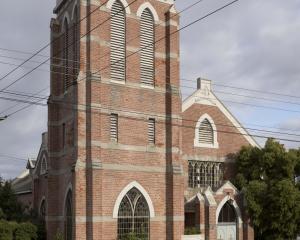
They had various reactions yesterday to the announcement by Minister of Local Government Simeon Brown of reform plans aimed at getting councils to focus on core infrastructure and spending money "responsibly".
Arguing their councils were already focused on the basics was one common theme.
Highlighting central government policy about water — a large cost centre for councils — was another.
Gore District Mayor Ben Bell and Southland District Mayor Rob Scott identified what they described as government irony.
"On one hand, they’re pushing us to reduce rates, yet simultaneously implementing new water services levies that will add to residents’ financial burden," Mr Bell said.
"The intention to control spending is important, but the execution seems disconnected from local government realities."
Mr Bell said benchmarking against other councils could have merit, but he was worried new reporting requirements would demand additional staff time and resources, distracting from service delivery.
His message to central government was "we welcome your focus on fiscal responsibility and core services — these have always been our priorities".
Mr Scott said he was sick of "Wellington scoring political points" by lowering taxes and passing on costs to local government and "then having the audacity to tell us off".
"I agree with the government in that we should be looking after our ‘need-to-haves’ well before any ‘nice-to-haves’, and if you take a look at our current long-term-plan, you will see this reflected all through it," he said.
Mr Scott said his district got a raw deal out of national roading funding.
He was not sure what Mr Brown was talking of when he referred to duplication with central government activity.
"Quite often councils are left to pick up the pieces when decisions in Wellington let our communities down," Mr Scott said.
Clutha District Mayor Bryan Cadogan said his district had the third-longest roading and water reticulation networks in New Zealand and the combined annual spend on roading and Three Waters was 92% of the council’s total.
He continued to lament central government policy changes about water after there had earlier been a concerted drive to take advantage of economies of scale.
"We’re being challenged on rates rises while at the same time being denied the only solution to Three Waters that was going to protect the ratepayers of New Zealand through efficiency," Mr Cadogan said.
Job-creation schemes had shown their worth, but he considered they might now be perceived as having too much of a "wellbeing" focus, which the government signalled was a distraction. The government had in the past year sown decline and despair, Mr Cadogan said.
"It takes the local out of local government and shackles councillors to a narrow pathway that will fail our nation."
Dunedin Mayor Jules Radich said half of the Dunedin City Council’s budget went to roading, property and waste management.
Water, the largest single activity, had 38% spent on it, and reserves and recreational facilities 8.2%.
This left 3.8% for "other".
"Water is an area of huge focus and expense right now because successive governments have introduced mandates for ever-increasing compliance that do not come with funding tools to match," Mr Radich said.
Central Otago District Mayor Tamah Alley said communities had a right to expect resilient infrastructure, safe water, protection for the environment and roads that met their needs.
"They also have the right to highlight what else is important to them to lead fulfilling lives, be it libraries, pools or a local hockey turf."
Invercargill Mayor Nobby Clark said he supported Mr Brown’s approach.
Mr Brown said the government was providing more tools to enable councils to invest in long-term infrastructure, as well as requiring them to focus on the basics.
"Councils are ultimately responsible for how rates are spent and the priorities they pursue."












